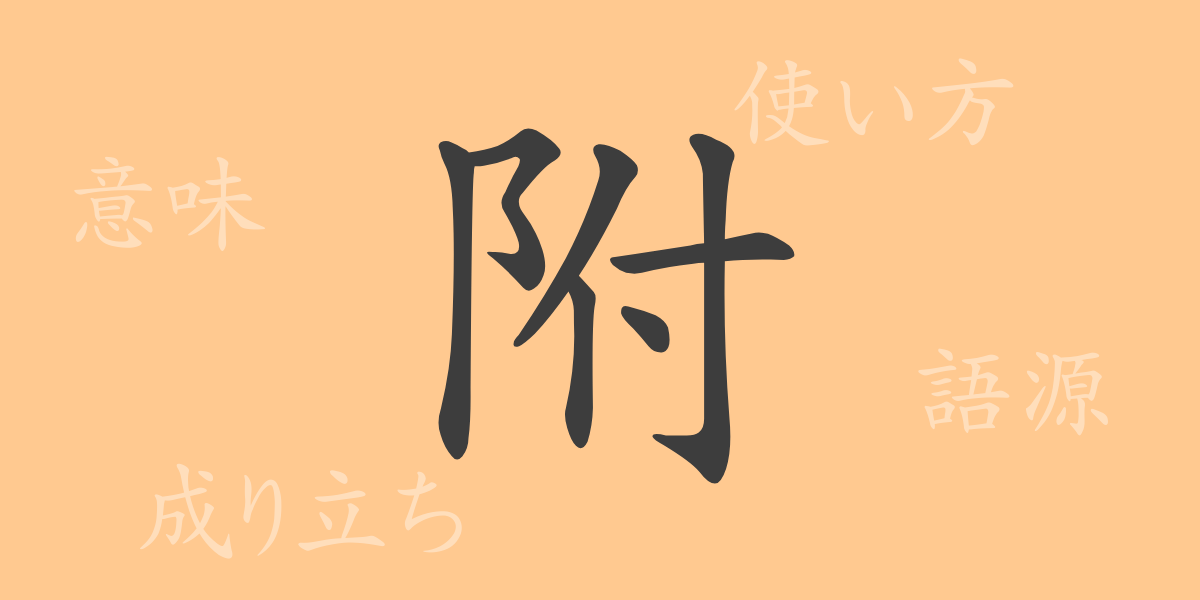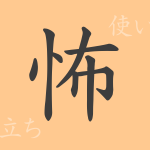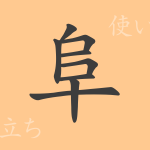“`html
In the Japanese language, the rich meanings of kanji (Chinese characters) and their formation processes reflect cultural backgrounds. This time, we spotlight the common-use kanji (じょうようかんじ) “附” (fu), which may not stand out in daily life but is often seen in important contexts such as laws and contracts. We will delve into its origins and modern usage. Let’s embark on a journey to rediscover Japanese culture embedded in each kanji character through the profound world this single character offers.
Origins of 附 (fu)
The kanji “附” (fu) has its origins in ancient China. Originally, it derived from a pictograph representing an object adhering inseparably to another. Over time, this kanji came to mean “to attach” or “to add.” In Japan, after the introduction of kanji from China, its meaning expanded within the unique context of Japanese culture and language, and it began to be used in specific contexts.
Meanings and Usage of 附 (fu)
The kanji “附” (fu) means “to attach,” “to add,” or “to append.” Specifically, it is often used when adding or connecting something to another. In legal terminology, it is commonly used in forms such as “附則” (fusoku – supplementary provisions) and “附帯” (futai – incidental), to add additional information to the text of a law. In daily life, it is also used in actions like “附箋” (fusen – sticky note), where a note is attached, demonstrating its wide range of uses.
Reading, Stroke Count, and Radical of 附 (fu)
The kanji “附” (fu) provides a wealth of information through its form and meaning.
- Reading: On’yomi (Chinese reading) is “フ” (fu), and Kun’yomi (Japanese reading) includes “つける” (tsukeru) and “つく” (tsuku)
- Stroke Count: 10 strokes in total
- Radical: The radical is “阝” (oonogamae – meaning a large gate)
Idioms, Proverbs, and Phrases Using 附 (fu)
Idioms, proverbs, and phrases containing “附” (fu) reflect its symbolic meaning. For example, “附属” (fuzoku) indicates a state of being attached to a main entity, and “附帯条件” (futaijouken) means additional conditions added to primary conditions. Additionally, the expression “尾を附ける” (o o tsukeru) refers to adding unnecessary remarks at the end of a story, showcasing the rich expressiveness of the Japanese language.
Summary of 附 (fu)
The kanji “附” (fu) possesses a surprisingly diverse range of uses and meanings despite its simple form. Its frequent use in various contexts within the Japanese language highlights the power of words and the beauty of a language refined over time by culture. Understanding the significance of this kanji, from legal terms to everyday conversations, leads to a deeper appreciation of the richness of the Japanese language.
“`

























